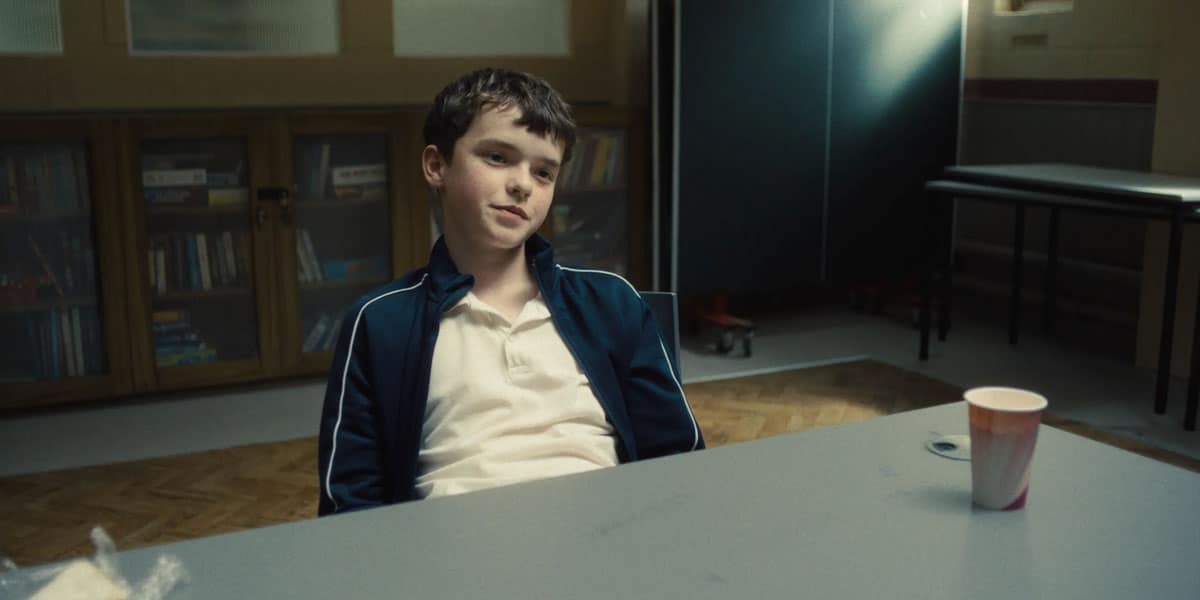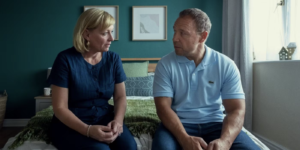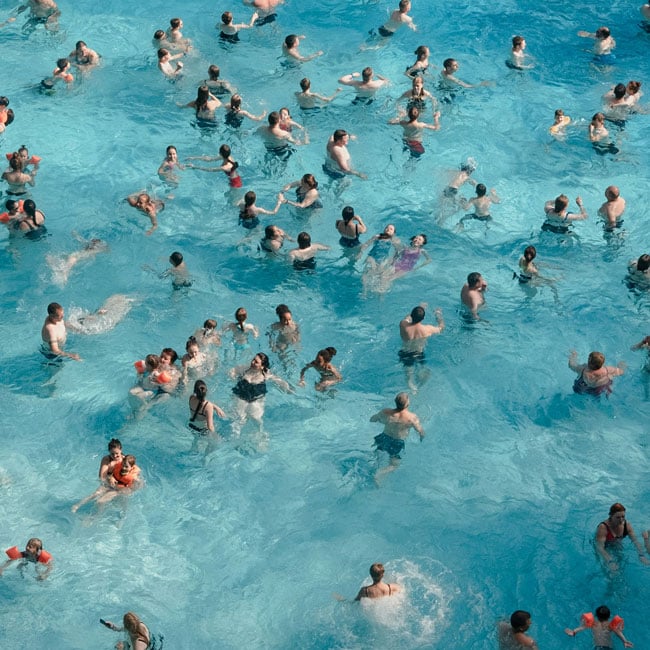
What does Adolescence tell us about identity?
Opinion + AnalysisSociety + Culture
BY Joseph Earp 27 MAR 2025
Adolescence, the exemplary new Netflix series that has become immediate water cooler conversation fodder, is built around a filmmaking decision that might have, in lesser hands, felt like a gimmick. Each of the four episodes of the show are filmed in one continuous, unbroken take.
Here, the decision is not just an inspiring feat of filmmaking verve. It also has a thematic point. Adolescence concerns the murder of a female high school student – the accused is 13-year-old Jamie Miller (Owen Cooper). The show carefully explores the fallout of that violent crime, in particular, what it churns up in the heart of Jamie’s father, Eddie (Stephen Graham, also the show’s co-creator).
The themes of Adolescence are laid out early, and clearly: misogyny; the anger in the heart of teenage boys; and, in particular, the forces that influence adolescents. These themes coalesce in one of the major questions of the show: who shapes the identity of young people, and, pressingly, young men? Is it their parents? The world around them? Or, most worryingly of all, the bad ethical actors who have made their careers through stoking the fires of hatred?
That unblinking, never-cutting camera allows us to explore this question with striking clarity. The camera never looks away. So painfully and shockingly, neither can we.
Who makes our children?
Unlike many other works of art based around crime and murder, Adolescence is not, particularly, a whodunit. It is more like a whydunit. We do have questions early on as to whether Jamie actually committed the crime of which he has been accused, but this is not the focus of the show. Instead, the mystery is a broader, harder, more probing one: why do young men commit acts of violence against women? More specifically, who formed Jamie’s ethical identity?
Eddie, Jamie’s father, seems to worry that it might be him. He spends the show wracked by guilt, confronted with the knowledge of his son’s suspected crime, and terrified that he did not do enough to stop him from walking down a very dark path. But is he solely to blame? The beauty of Adolescence is that it instead leaves those “responsible” for the dark parts of Jamie’s personality nebulous.
In his groundbreaking work, Sources of the Self, philosopher Charles Taylor provides an answer – albeit a worrying one. He argues that identity is formed by a collective. In his view, human beings are defined and constructed through their relationship with others – we become who we are, by virtue of who we interact with. On this view, parents are of course responsible for the shaping of their children’s ethical makeup – but they’re not solely responsible.
And they’re particularly not responsible when adolescence hits. Every parent to teenagers knows that rebellion against the older guard is inevitable – and parents are often the last people that children will confer with. That, according to Taylor, leaves children susceptible to other formative ethical forces – and in the case of Jamie, those are the bad misogynist actors that he is surrounded by, from his schoolmates, to the ever-pressing threat of online radicalisation.

The spectre of the other
Taylor’s view is particularly troubling when combined with the writings of another philosopher, Giorgio Agamben. In his major work, Homo Sacer: Sovereign Power and Bare Life, Agamben argues that ethical identities are especially formed by the rules of inclusion and exclusion. People become who they are by deciding who they are not, forming an in and an out-group that gives them a sense of security in their own personhood.
In Adolescence, it’s exactly that exclusionary nature that seems to lead Jamie down his dark path. His world, like the world of far too many teenage boys, is defined by strict and dangerous binaries: boys versus girls, winners versus losers. His worldview, when we get to hear it, seems defined by hatred for what is different, and a desperate clinging to that, which he sees as the same as himself. When such strict battle lines are drawn, violence is a natural endpoint.
What then do we do to attempt to get our teenage boys back on the right path? Away from violence, hatred, and exclusion? Adolescence, bravely, doesn’t offer a solution. In fact, that’s exactly what Taylor and Agamben show us – that one simple, pat, generic solution doesn’t have the power to change anything.
After all, if we take the work of those philosophers to be true, then we see the entire social environment as constitutive of identity. That means parents. It means friends. It means the entertainment young men consume. It means what they hear in the playground.
Our gaze must significantly broaden – and we must not consider the likes of Jamie to be an outlier. Instead, we must see him as a product of an entire social system.
When, in the final episode of Adolescence, Eddie asks his wife, “shouldn’t we have done better?”, the initial impulse is to assume he means the two of them. The better read is that he means all of us.

BY Joseph Earp
Joseph Earp is a poet, journalist and philosophy student. He is currently undertaking his PhD at the University of Sydney, studying the work of David Hume.
Ethics in your inbox.
Get the latest inspiration, intelligence, events & more.
By signing up you agree to our privacy policy
You might be interested in…
Explainer
Society + Culture, Politics + Human Rights
Thought experiment: The original position
Opinion + Analysis
Relationships, Society + Culture
What does love look like? The genocidal “romance” of Killers of the Flower Moon
Opinion + Analysis
Relationships, Society + Culture
But how do you know? Hijack and the ethics of risk
Explainer, READ
Society + Culture




